The Art of Not Picking A Lane
It’s Winter 2021. And like so many other socially-isolated pandemic homebodies sporting button-ups with sweatpants out of view, I’m in the middle of a Zoom call. After being prompted to awkwardly rattle off the things I’m currently up to in my life, I smile and look into the Zoom square opposite me, expecting my colleague-friend to take their turn listing off their current projects, too. It’s a common ritual in calls like these that I generally dislike, but oh no.
That’s not what’s happening here.
I can feel something even worse, more dreaded, coming my way. Here we go, I think to myself. Here it comes again.
I watch as my colleague-friend leans back in their office chair, shakes their head, and offers me some well-meaning advice. “You’re trying to do too much, you know,” and then when I agree that I’m probably overworked but try to explain that I like the work I’m doing, feel lucky, even, they offer: “Taylor, you are eventually going to commit to one side or the other, decide which direction you’re going in. You can’t be both an artist and an academic. Pick a lane.”
I’m someone who’s spent the better part of my career in both lanes, often at the same time. To give you an idea of what I’d rattle off to a friend right now, for example: I’m currently a PhD Candidate at the University of Guelph, and this fall I’m teaching a third-year undergraduate course at Western. Also, my most recent play, Post Alice, just finished its premiere run at the Here For Now Festival in Stratford.
See what I mean?
I’m someone who’s spent the better part of my career in both lanes, often at the same time.
Now, this has happened to me many times, this offer of well-meaning advice to “pick a lane,” so I’m surprised by how my body reacts this time around. I don’t smile, shrug, or even thank the person for their concern like I usually do. I don’t graciously find a way to change the subject, or turn the conversation to something else.
Instead, I hear myself pretending that someone out of view of the Zoom screen is having an emergency. “Oh no! Are you ok?” I hear myself say to my empty office doorway. What am I doing? This must look as unbelievable as it is. I’ll be the first to tell you that I’m a terrible actor, especially in the role of concerned woman in some vague off-screen emergency. This is no doubt as embarrassing for me as it is for the other person on this Zoom call, but this is what’s happening, I guess. An annoyed voice through my headphones says, “You should probably go deal with that” and I end the call with “Yup, sorry. Sorry. Sorry,” as I quickly close my laptop.
I’m so embarrassed, and as I take a deep breath, I notice my body is shaking. My skin is also hot to the touch and my ears are ringing to the beat of my heart. What’s going on here? Did my body just manifest a karmic emergency out of shame? No. That’s not quite it. I’m angry, I realize. I’m angry? Generally speaking, I’m a pretty level-headed and calm kinda person. It’s something I sorta take for granted. I know at least part of this anger must be directed at myself, then, for how incredibly immature I just was, and for what will surely go down in history as the most awkward Zoom call exit of all time.
But there’s more to it than that.
While the source of this strong emotion surging through my body is not entirely clear just yet, I know I need to move, to get my feet under me. I pull on some winter gear and head out wandering into the cold.
Flash-forward to today. In the lead up to Back-to-School this Fall 2021, I’ve been reflecting back a lot on this angry walk through the snow. I now understand that this unexpected physical and emotional response was likely a long time coming for me. I simply could not hear the advice to “pick a lane” one more time. I should have found a better way to express this to my colleague-friend in the moment of course, but my body was ahead of the rest of me on this one. It took flight and the rest of me had to catch up afterward.
I simply could not hear the advice to “pick a lane” one more time.
Ultimately, I realized this surprise anger was caused by a few troubling assumptions behind the advice often offered to me. It questions my capacity to choose my own career path (which I have been on for well over 10 years now). It also aligns with a very narrow perspective of what is possible and perceived as proper for a career in the arts today. As a new crop of artist-grads head to class this fall, I want to help them avoid this same advice offered to me. Let’s put that old adage away and let people pick two lanes or even more. Or just maybe, if they are encouraged enough, someone might create an entirely new lane or even dismantle the concept of lanes altogether instead.
But you might be thinking, what’s the big deal? Aren’t you overreacting, Taylor? It was just advice. Someone just offered you advice—maybe even good advice. Were you just being closed minded? Is it possible that you are better off focusing on one passion and not splitting yourself down the middle?
I’ve given this a lot of thought. Six points worth of thought in fact:
(1) When I say that the suggestion to “pick a lane” is well-meaning, I do think that is true. I genuinely understand that from certain vantage points, it does seem like a poor career choice to both create theatre and engage with it critically, too.
(2) This is partly because there is a rarely talked about invisible line often drawn between creators and academics, one that may feel like they’re at odds with each other. This tension, I think, comes from both sides.
Some creators can be weary of over-theorizing eyes. To use an admittedly oversimplified example: imagine for a minute that you spend months working on a theatrical production. How would you feel knowing an academic in the audience may write about your work’s worth with the world at large? Now what if you disagree with their findings—find them hurtful, even? This is a difficult, emotional rollercoaster to navigate and may prompt completely understandable defensive tactics in response.
Some academics may also feel misunderstood by artists. Academics provide important discussions about theatre’s impact on broader society. Their work also documents theatre, which as a live art has always been historically difficult to do. Plus, they train new theatre audiences, artists, and academics to do the same. Because this work is perceived as coming from the head not the heart, it can be easy to forget that most theatre academics also have a deep passion for theatre. If there’s a sense (rightly or wrongly) that artists do not recognize the vital contribution academics make to the industry some academics can perhaps reasonably become a little defensive too.
Now again, what I just described is an oversimplification of a very complex issue, and:
(3) There are many people who are actively working to dismantle this tension between groups, calling attention to the fact that these two areas are not as distinct as many believe. It is my experience however, as demonstrated by the often offered advice to “pick a lane” that:
(4) the opinion that the distinct camps should not mix is unfortunately still quite common in our industry.
(5) There are consequences to this tension between groups. For example, I recently asked a talented theatre artist friend why their grad degree wasn’t on their resume. They told me it’s so they don’t raise eyebrows or seem like they might be difficult to work with. In some academic circles, I’ve witnessed the opposite as true, where artistic contributions are not always given the respect and value they deserve on a budding academic’s resume.
(6) This narrow perspective can ultimately be harmful and does not serve to support folks currently working successfully across the divide.
As I mentioned, my scholarly research work inspires my writing life and my artistic work opens up valuable questions for my academic work. The two have always fueled each other. For example, early summer 2020, I joined a weekly online academic book club to read and discuss 2013 Nobel Prize-winning author Alice Munro’s work. As a woman from Huron County, where Munro is also from and often writes about, I’ve been reading her work for years. I also more formally researched her work for my PhD dissertation on the Blyth Festival Theatre, where two Munro short stories have been adapted for the Blyth stage.
Now, even though I’m quite open to the possibility of academic work inspiring my creative life, I did not anticipate how this Munro research might manifest in my creative writing. What ended up happening is that I wrote a play inspired by four female protagonists from four of my favourite Munro stories. Post Alice (mentioned earlier) recently premiered at the Here For Now Theatre Festival in Stratford, directed by their immensely talented AD Fiona Mongillo and performed by four truly incredible actors. I was completely overwhelmed by the critical reception including a five star review from Stage Door, where Chirstopher Hoile called Post Alice “one of the most exciting new Canadian plays I’ve seen for some time . . . a lyric, Chekhovian meditation on the loss of the past and the loss of the people we once thought we were . . . a profound, beautifully crafted play.” I’m intensely proud of this production and deeply thankful to the play’s beautiful creative team. I’m still smiling.
Without a doubt, had I not engaged with Munro scholars and scholarship, Post Alice would not exist today. If you think about it, doing a PhD like mine, where a lot of your time is consumed reading plays or reading about plays—how could that not positively impact my writing? As I’m reading to see if a work fulfills a theoretical perspective, I am also learning it’s tips and tricks of craft, paying attention to the “how” as much as the “what” and “why” of the text. I’m gathering context and reading perspectives, broadening my initial thoughts, comparing ideas.
I’ve also found that my job as an artist and my job as an academic are quite similar in some ways. Both require me to dig into big philosophical questions about life, people, culture, etc. Both require strong communication and storytelling. Both fill me with a sense of meaning in a difficult world, and the more I dissect them, the less I am able to find where one ends and the other begins.
Both jobs require strong communication and storytelling. Both fill me with a sense of meaning in a difficult world, and the more I dissect them, the less I am able to find where one ends and the other begins.
Some people spend years working every day on one passion, one project even, and that can yield excellent results, be the exact right decision, one that fuels, sustains. I have nothing but love in my heart for individuals who make this choice. Truly! I do however hope for a future where an alternative route is not frowned upon or advised against. With another Back-to-School season currently underway, there are many artists out there starting a new adventure in academia. Please don’t try to stop them—even with well-meaning advice!
And if you’ve been advised to “pick a lane,” but find it doesn’t sit right with you, fit your personal needs, then please know you are not alone! I say go ahead, explore both. Try, fail, triumph, learn.
Make the art and question it, too.


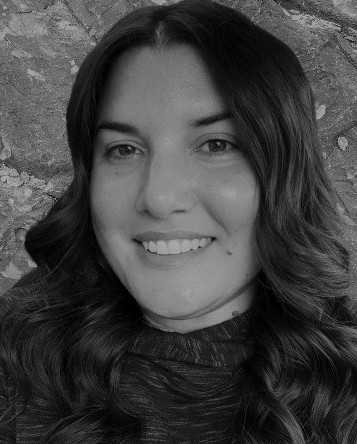






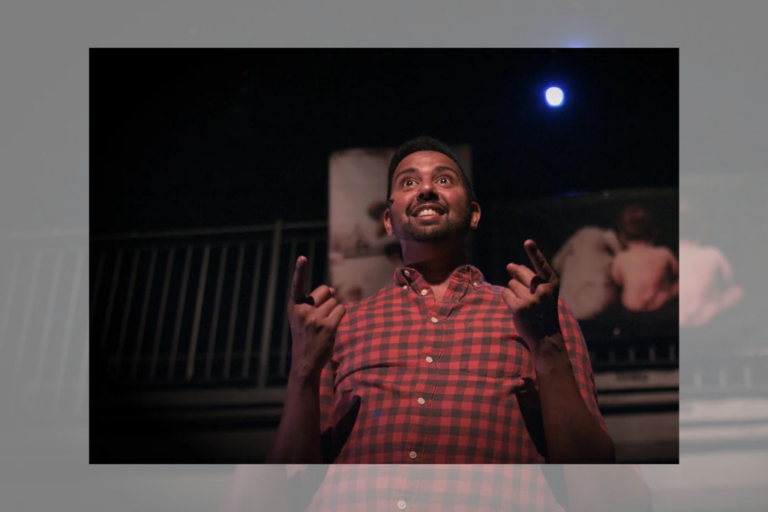
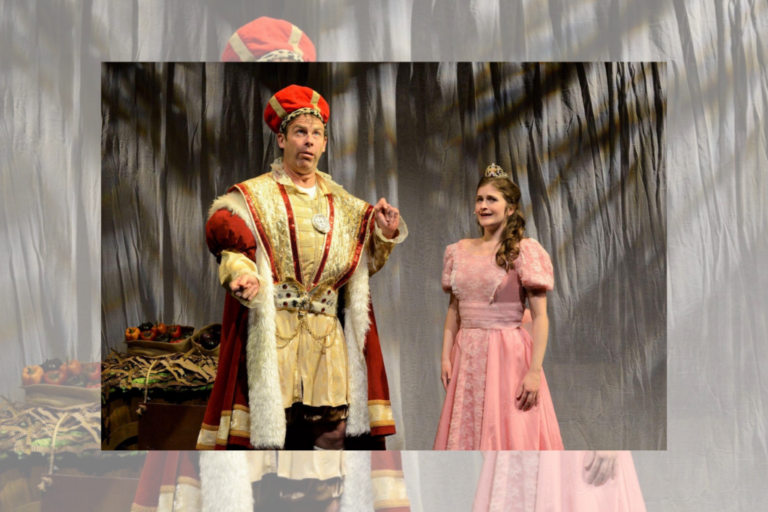
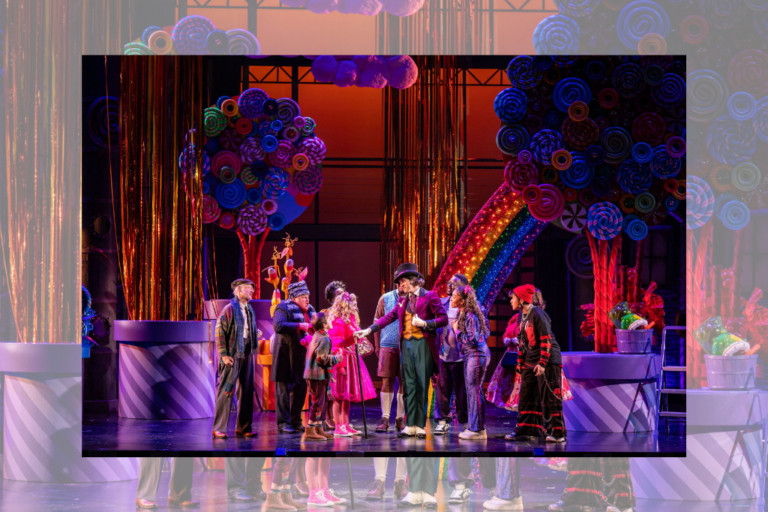

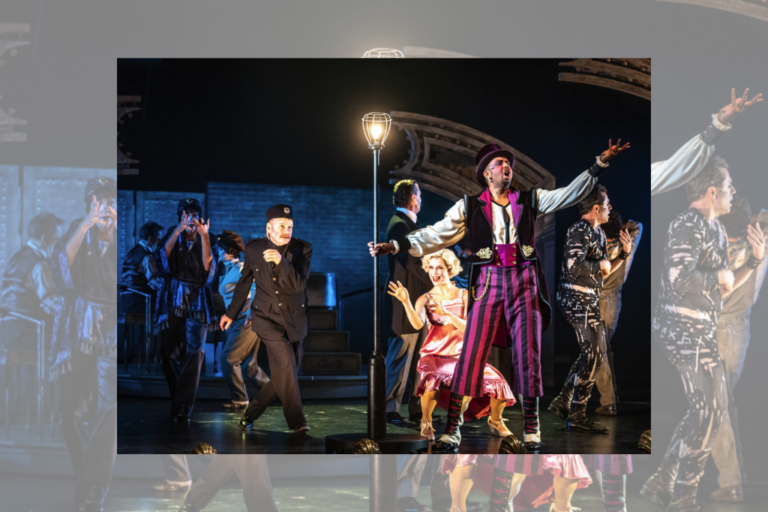
Comments